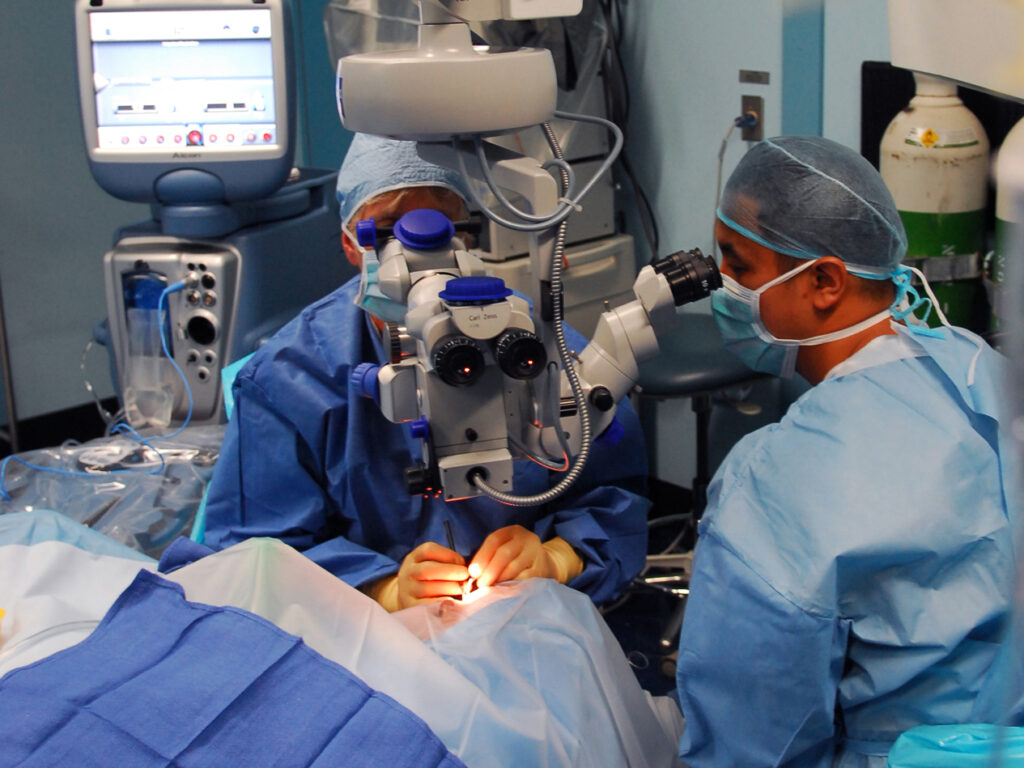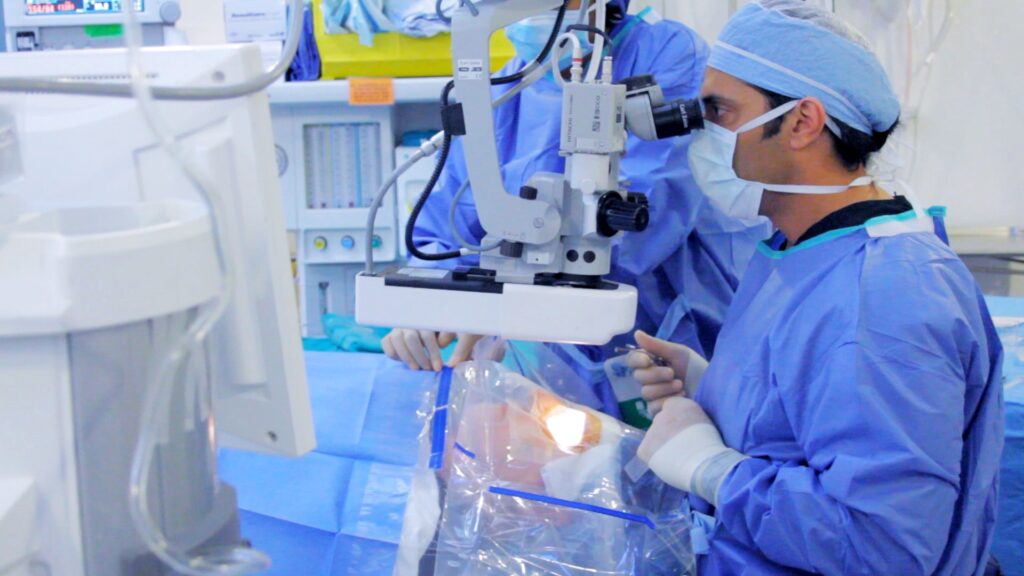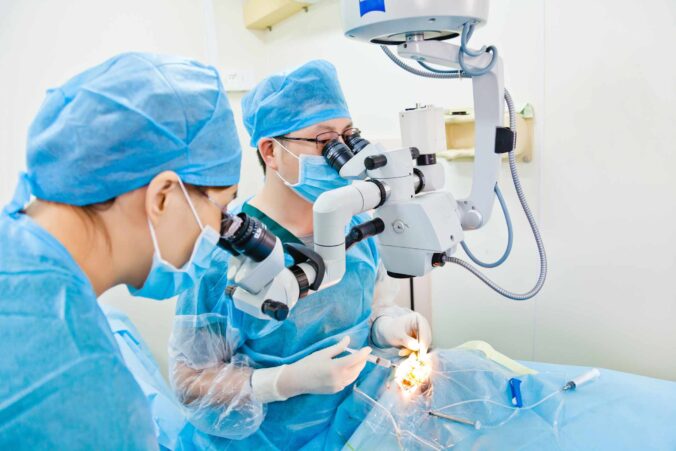In this digital age, clear vision is more important than ever. Whether it’s watching your favorite movie or reading an important document, having crystal clear vision can greatly enhance your quality of life. Laser eye surgery, also known as refractive surgery, has become a popular option for those looking to improve their vision. In this article, we will delve into the world of laser eye surgery, exploring its benefits and debunking common myths. We will also guide you through the process of preparing for surgery and provide tips for life after the procedure. So, let’s begin our journey into the world of laser eye surgery and discover the wonders it can bring.
Understanding Laser Eye Surgery
Before we dive into the benefits of laser eye surgery, let’s take a closer look at what best laser eye surgery entails. At its core, laser eye surgery is a procedure that uses a laser to reshape the cornea, the clear front part of the eye. By altering the cornea’s shape, the surgery helps to correct refractive errors such as nearsightedness, farsightedness, and astigmatism.
When it comes to laser eye surgery, precision is key. The science behind the procedure is fascinating. The success of laser eye surgery lies in its precision. The procedure uses an excimer laser to precisely remove tiny amounts of corneal tissue, reshaping the cornea to correct vision problems. This advanced technology allows for a high degree of accuracy, ensuring that the desired vision correction is achieved.
Now, let’s explore the different types of laser eye surgeries available today. There are several types of laser eye surgeries available today, each catering to different vision needs. One common type is LASIK (Laser-Assisted in-situ Keratomileusis), which involves creating a thin flap on the cornea and reshaping the underlying tissue. This procedure has gained popularity due to its quick recovery time and minimal discomfort.

Another popular option is PRK (Photorefractive Keratectomy), which removes a thin layer of the cornea to reshape it. PRK is often recommended for patients with thin corneas or those who are not suitable candidates for LASIK. Your ophthalmologist will evaluate your specific needs and recommend the most suitable type of surgery for you.
It’s important to note that laser eye surgery is not a one-size-fits-all solution. Each individual’s eyes are unique, and the procedure must be tailored to their specific needs. During the initial consultation, your ophthalmologist will conduct a thorough examination of your eyes, including measuring their shape, size, and thickness. This comprehensive evaluation will help determine the most appropriate course of action for your vision correction.
Furthermore, laser eye surgery is not without its risks. While the procedure has a high success rate, there are potential complications that can arise. These may include dry eyes, glare, halos, and even a temporary decrease in vision. It is crucial to have a detailed discussion with your ophthalmologist about the potential risks and benefits of laser eye surgery before making a decision.
In conclusion, laser eye surgery is a remarkable procedure that has revolutionized vision correction. It offers individuals the opportunity to reduce or eliminate their dependence on glasses or contact lenses. By understanding the science behind the procedure and the different types of surgeries available, you can make an informed decision about whether laser eye surgery is right for you.
The Benefits of Laser Eye Surgery
Are you tired of constantly reaching for your glasses or struggling with the discomfort of contact lenses? Laser eye surgery may be the solution you’ve been looking for. Not only does it offer improved vision quality, but it also provides long-term cost effectiveness and a quick recovery time.
Improved Vision Quality
Imagine waking up in the morning and being able to see clearly without reaching for your glasses. Laser eye surgery can make this a reality for many patients. By reshaping the cornea, the procedure corrects refractive errors such as nearsightedness, farsightedness, and astigmatism. The result is clear and sharp vision, allowing you to engage in everyday activities like driving or reading without the hassle of corrective eyewear.
Furthermore, laser eye surgery can reduce or even eliminate the need for glasses or contact lenses. This newfound freedom can enhance your quality of life and boost your confidence. No more worrying about misplaced glasses or discomfort from wearing contacts for extended periods.
Long-Term Cost Effectiveness
While laser eye surgery may require an upfront investment, it is often more cost-effective in the long run compared to the ongoing expenses of glasses and contact lenses. Consider the cost of purchasing new frames, lenses, and contact lenses over the years. These expenses can add up significantly.
With laser eye surgery, you can say goodbye to these recurring costs. Once you’ve undergone the procedure, the need for corrective eyewear is greatly reduced or eliminated altogether. This means you can save money over time, making laser eye surgery a wise financial decision.

Quick Recovery Time
One of the concerns many people have about surgery is the recovery time. Fortunately, laser eye surgery offers a relatively quick recovery period. While individual experiences may vary, many patients find that they can return to their normal activities within a few days following the procedure.
During the recovery process, it is important to follow your doctor’s instructions carefully. This may include using prescribed eye drops, avoiding strenuous activities, and wearing protective eyewear. By taking these precautions, you can ensure a smooth healing process and a swift transition to enjoying the benefits of improved vision.
It’s worth noting that some patients may experience temporary side effects during the recovery period, such as dry eyes or sensitivity to light. However, these symptoms typically subside within a few weeks, leaving you with clear and comfortable vision.
Overall, laser eye surgery offers numerous benefits beyond just improved vision quality. It provides long-term cost effectiveness by eliminating the need for glasses or contact lenses, and it offers a quick recovery time, allowing you to get back to your daily routine in no time. If you’re ready to experience the freedom of clear vision, consider consulting with a qualified ophthalmologist to determine if laser eye surgery is right for you.
Debunking Common Myths About Laser Eye Surgery
While laser eye surgery offers numerous benefits, there are often misconceptions surrounding the procedure. Let’s debunk some of the common myths and address any concerns you may have.
Addressing Safety Concerns
One common myth is the safety of laser eye surgery. Rest assured, laser eye surgery is a safe and well-established procedure. With advancements in technology and stringent safety protocols, the risks associated with the surgery are minimal.
During the surgery, your ophthalmologist will use a highly precise laser to reshape the cornea, correcting refractive errors such as nearsightedness, farsightedness, and astigmatism. The procedure is performed under local anesthesia, ensuring your comfort throughout.
Before undergoing laser eye surgery, your ophthalmologist will thoroughly evaluate your candidacy for the procedure. They will assess your overall eye health, corneal thickness, and the stability of your prescription. This comprehensive evaluation will help determine if you are a suitable candidate for the surgery and ensure that it is safe for you.
Furthermore, the ophthalmologist will discuss any potential risks or complications associated with the surgery. While rare, complications can include dry eyes, glare, halos, or temporary visual disturbances. However, these side effects are typically mild and resolve over time.
The Reality of the Success Rate
Another myth is the success rate of laser eye surgery. The reality is that laser eye surgery has a high success rate, with most patients achieving their desired vision correction. The procedure can significantly improve your visual acuity and reduce your dependence on glasses or contact lenses.
However, it’s essential to remember that individual results may vary. Factors such as the severity of your refractive error, your age, and the health of your eyes can influence the outcome. Your ophthalmologist will discuss realistic expectations with you during the initial consultation, taking into account your specific circumstances.

It’s important to note that laser eye surgery results are generally long-lasting. The corneal reshaping performed during the procedure is permanent, providing you with improved vision for years to come. However, it’s natural for your eyes to undergo age-related changes over time, which may require additional vision correction in the future.
During the follow-up appointments after the surgery, your ophthalmologist will monitor your healing progress and address any concerns or questions you may have. They will provide you with comprehensive post-operative care instructions to ensure optimal healing and visual outcomes.
In conclusion, laser eye surgery is a safe and effective procedure for vision correction. By addressing common myths and misconceptions, we hope to alleviate any concerns you may have. If you’re considering laser eye surgery, schedule a consultation with a qualified ophthalmologist to discuss your options and determine if you are a suitable candidate.
Preparing for Laser Eye Surgery
Initial Consultation and Evaluation
Preparing for laser eye surgery begins with an initial consultation and evaluation with your ophthalmologist. During this visit, your overall eye health will be assessed, and your vision prescription will be thoroughly examined. Your ophthalmologist will also discuss the different laser eye surgery options available to you and help you determine the best course of action.
What to Expect on the Day of Surgery
On the day of the surgery, you may feel a mix of nerves and excitement. Rest assured, your ophthalmologist and the surgical team will guide you through the process and ensure your comfort. The procedure itself is typically quick, with the laser eye surgeon using advanced technology to reshape your cornea painlessly.
Life After Laser Eye Surgery
Now that you’ve undergone laser eye surgery, it’s time to focus on post-surgery care and maintenance to ensure the best possible outcome.
Post-Surgery Care and Maintenance
Following laser eye surgery, your ophthalmologist will provide specific instructions for post-operative care. This may include using prescribed eye drops, wearing protective eyewear, and avoiding strenuous activities for a certain period. It’s crucial to carefully follow these instructions to support the healing process and optimize your long-term vision outcome.
Embracing a Life Without Glasses or Contact Lenses
One of the most exciting aspects of life after laser eye surgery is the freedom from glasses or contact lenses. Imagine waking up in the morning and seeing the world clearly without the need for any visual aids. It’s a liberating feeling that opens up a new world of possibilities.
In conclusion, laser eye surgery offers numerous benefits, from improved vision quality to long-term cost effectiveness. By debunking common myths surrounding the procedure and understanding how to prepare for surgery, you can make an informed decision about whether laser eye surgery is right for you. Remember, each person’s experience may vary, so it’s essential to consult with a qualified ophthalmologist who can guide you through the process from start to finish. Embrace the potential for crystal clear vision and take the first step towards a brighter future.
More to read: Top six CPAP machines in Australia [2023]




